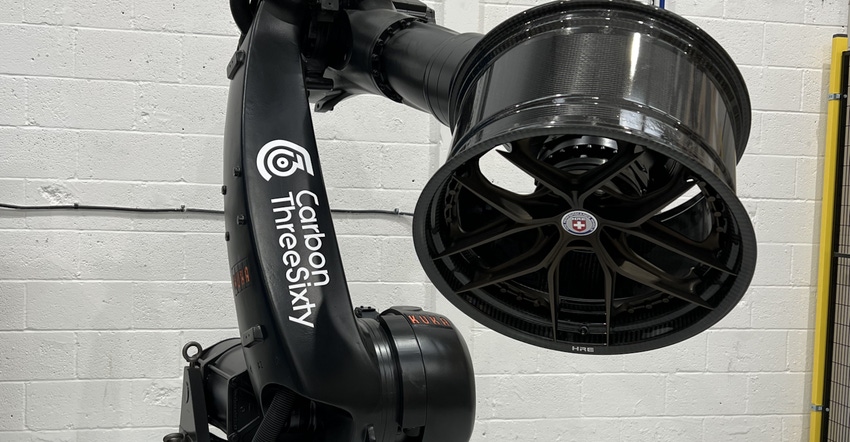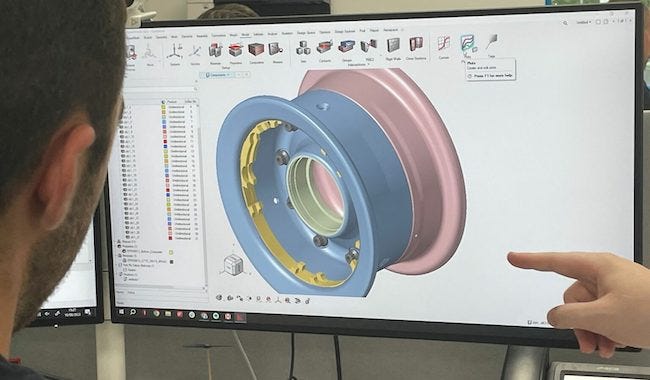Composites Innovator Installs Six-Axis Robotic Filament Winding Cell
Additional investment in simulation software boosts Carbon ThreeSixty's composite manufacturing capabilities for automotive, aerospace, energy, and defense applications.
August 17, 2023

Carbon ThreeSixty (CTS), an innovator in composite technologies, has installed a new robot cell that will accelerate the company’s composite manufacturing capabilities. The cell is based around a six-axis Kuka KR240 robot that is capable of handling a range of composite materials and processes, further extending CTS’s manufacturing capability in Chippenham, UK
The winding cell can process materials in dry tow, wet wind, and pre-impregnated formats on parts up to 1.2 m in diameter and 3.5 m in length. The parts are suited for hydrogen storage, transmission shafts, and electric motors, among other products. The robot will be used both for filament winding and development of future manufacturing automation processes across CTS’s advanced product portfolio. Parts can be mounted on a standalone spindle frame or placed directly on the robot arm, depending on requirements, processing up to four tows from 3 to 50 K at once.
CTS also recently invested in specialist software to augment its already extensive suite of composite design and manufacturing tools. Accurately predicting behavior of complex composite structures is a cornerstone capability, said CTS. Through detailed simulation, the engineering team is able to rapidly develop new products and processes, enabling further growth of the company.
|
Simulation software is key in ensuring robustness, safety, and lightweighting of composite components, according to Carbon ThreeSixty. |
Altair Hyperworks is widely recognized as one of the leading software solutions for complex composite modeling. It allows CTS to work with numerous companies on the design, modeling, and finite element analysis (FEA) of products, ensuring that the structures designed are fully understood before manufacture and physical testing. The team is steadily building its ability to combine Hyperworks simulation with different manufacturing techniques, such as tailored fiber placement in conjunction with resin transfer and compression molding.
CTS Lead Stress Engineer Goncalo Valente said, “It is of key importance to have the state-of-the-art tools that allow us to confidently study our composite structures in various fronts, always aiming for robustness, safety, and lightweighting. The full suite of Altair products enables CTS to go from concept design to detailed product development not only on the implicit level but also on complex dynamic problems with the Optistruct and Radioss solvers. The high demand in highly optimized structures requires CTS to understand the product to the fiber tow level, linking Altair Hyperworks, EDOstructure, and EDOPath and determining the tow path based on the stress tensors, exploring all the benefits of tailored fiber placement.”
CTS is a turnkey provider for the design, development, and manufacture of challenging advanced composite structures. It works in the aerospace, automotive, energy, and defense sectors, specializing in resin transfer molding processes and novel preforming techniques, such as tailored fiber placement, to produce optimized, cost-effective structures.
About the Author(s)
You May Also Like





